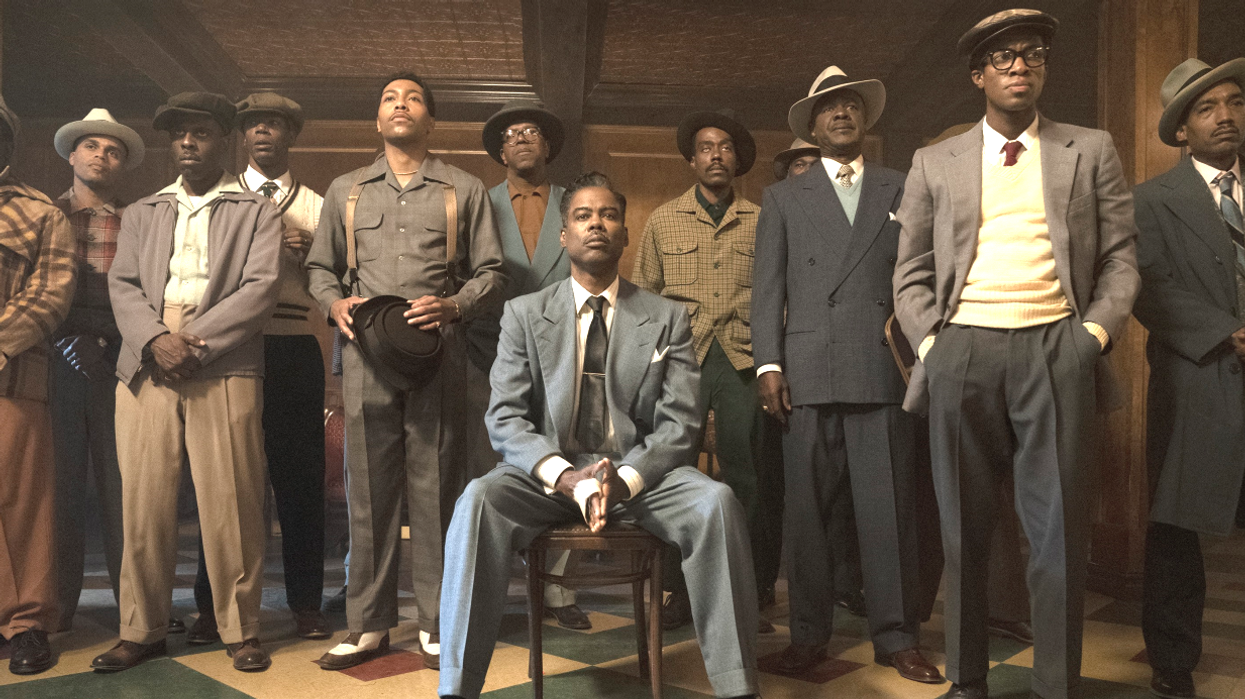What Drew Noah Hawley Back to 'Fargo'?
The fourth season of Fargo is telling an old story a new way.

The story of two crime syndicates fighting over the same territory is not a new or novel idea within the seasons of Fargo, but rarely has the show taken the time to focus on race in America.
Season four of Fargo seems like a reckoning for everything that came before it. It's rife with references to the Coen Brothers' movies in a new lens, one that reimagines characters, swaps genders, and forces us to reconcile how the country we know came to be.
And how much blood is shed when a marginalized group tries to achieve equality.
In a new interview with Collider, showrunner Noah Hawley talks about what drew him back to the show for another season and how working with people like Chris Rock, Jason Schwartzman, Jessie Buckley, and Ben Whishaw helped the cause.
Hawley began by describing what idea caused the spark for him to return. He told Collider:
"I walk out of it always feeling like, 'Well, that’s gotta be it, right?' But then, invariably, there’ll come a moment where I go, 'Oh yeah, we could do that.' It always comes as a scenario, like two men in an emergency room, or a woman driving home with a man stuck in the windshield of her car, that makes me go, 'Oh, that’s interesting.' Here, it was this idea of these two crime families who have to trade their youngest sons in order to keep the peace. That seemed really interesting to me, as a way to look at immigration and assimilation and also, how painful is that for these families? Who are these kids gonna grow up to be? What are the sacrifices?"
Those deeper, American issues are what has made season four feel so prescient.
But it all comes down to one thing. He told Collider, "Fargo is an exploration of crime and that criminal mindset."
But what happens when the criminal mindset drifts into an area that's like an epic, with over two dozen characters and storylines to keep track of?
Hawley told Collider, "It’s 25 characters, so it’s just logistically supporting that big of a cast and all of the period stuff, which means that nothing’s cheap and nothing’s easy. The cars don’t actually run. Whenever you’re like, 'Okay, and go,' the car dies. Because it’s period, every extra has to be dressed. It’s a huge undertaking. I find that exciting. I’ve really aspired to do period storytelling on some level because I always felt like, if you make a period piece, it has to feel like a period show or a period movie. I was like, 'Let’s do something period that feels modern.' That was exciting."
Collaboration is front and center this season as Hawley and the other writers try to tackle a new set of diverse experiences.
He goes into what it takes to see the Coens' voice in a new light and incorporate it into the work.
"What is the tone of the Coen brothers' voice in the African-American experience, and the Italian immigrant experience? You saw some of that in Miller’s Crossing. That’s the fun of it. To be able to talk about humor with Chris, a big part of Fargo and the Coen brothers’ tone of voice is rooted in a very Jewish, Kafkaesque state of mind. It’s a comedy that’s rooted in suffering, and that feels like it applies to these stories. To explore that is really exciting. I don’t know about every other writer but I don’t want to do the same thing over and over again. I get really excited when it’s like, 'Oh, I’ve never thought of that,' and there are new things that you can explore. So, we’ve had a great collaboration."
So how doe Hawley sustain his creative juices? The answer is being able to take time off.
"It’s so all-consuming, these stories. I really do end them with a great feeling of emptiness, like that was everything that I had. So, I don’t know. One wonders how much is enough, on some level. Part of what’s good about how it’s been three years since the last one is that we’ve got some distance and some time from it and people can approach it fresh. It’s not like, 12 months ago you’ve finished and now here it is again, and it feels familiar."
This is just the Hawley parts of the interview, but if you want to hear from his amazing cast, click over to Collider for the rest.
One thing I took away from his talk is that he has to recharge like the rest of us and figure out what he doesn't know about the project. That curiosity can lead to a new season of television and a new passion for writing.
You need to find that in your work and to be okay taking breaks as well.
Fargo airs on Sunday nights on FX at 9/8c.
Check it out and let me know what you think of the new season in the comments.
Source: Collider











